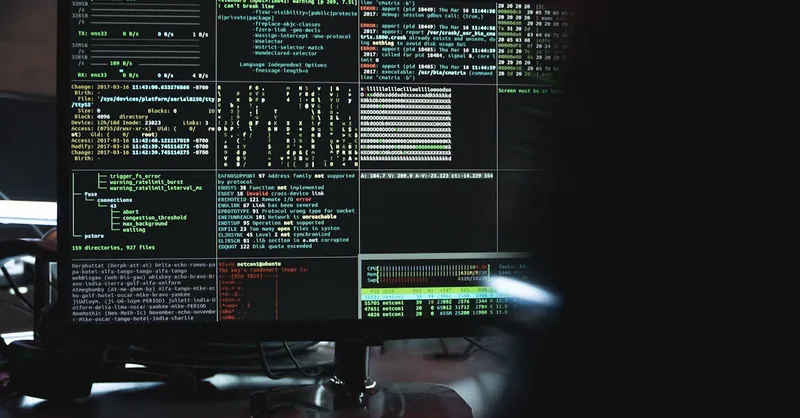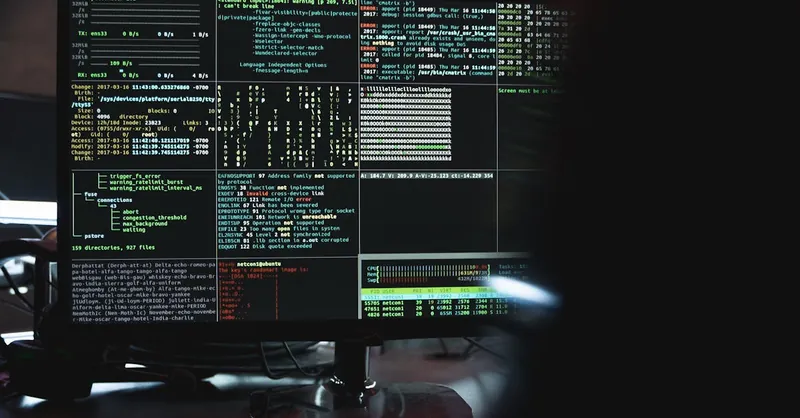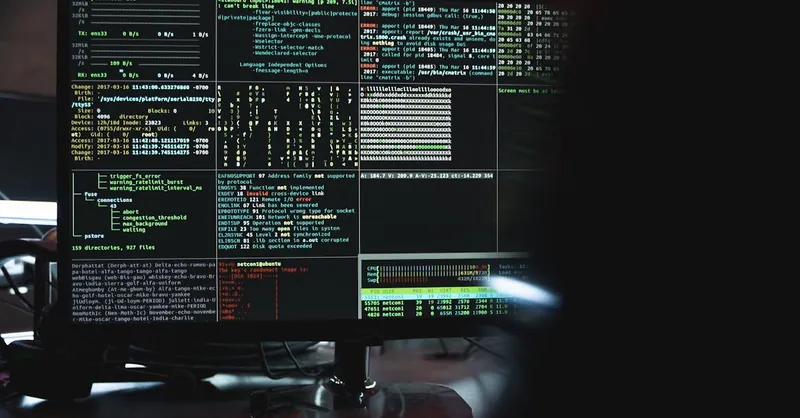How to Become an Ethical Hacker: Ultimate Beginner’s Guide
Category: Ethical Hacking
Unlock Your Path to Ethical Hacking Success
If you’ve landed here, you’re likely passionate about diving into the world of ethical hacking but unsure where to start. Whether you’re a total beginner with no prior experience or someone with a bit of tech know-how curious about what it takes to break into cybersecurity, this guide is tailored precisely for you. The journey to becoming an ethical hacker can seem daunting—with endless jargon, complex tools, and certifications to chase—but understanding the right path and the foundational skills makes all the difference.
This blog post cuts through the noise, offering a clear, step-by-step roadmap that covers not only the basics but also practical insights and essential skills you need to build your ethical hacking career. You’ll discover how to grasp cybersecurity principles, master vital programming languages, get hands-on with penetration testing techniques, and prepare for certifications that employers trust. Unlike other content that glosses over details or drowns you in theory, our guide balances foundational knowledge with actionable tutorials, designed for beginners to confidently progress and for experienced hackers to deepen their understanding.
Get ready to unlock your hacker mindset, avoid common pitfalls, and set yourself on a path where curiosity meets real-world ethical hacking prowess.
- Unlock Your Path to Ethical Hacking Success
- Understanding Ethical Hacking: Definition, Importance, and Legal Considerations
- Core Skills and Knowledge Required
- Programming and Scripting for Hackers
- Tools of the Trade: Common Ethical Hacking Software and Platforms
- Setting Up Your Hacking Environment
- Step-by-Step Penetration Testing Methodology
- Certifications and Learning Resources to Accelerate Your Ethical Hacking Journey
- Career Paths and Getting Hands-On Experience
- Advanced Concepts and Continuous Learning
Understanding Ethical Hacking: Definition, Importance, and Legal Considerations
Ethical hacking, also known as white-hat hacking or penetration testing, refers to the authorized practice of probing computer systems, networks, and applications to identify security vulnerabilities before malicious hackers can exploit them. Unlike illegal hacking, ethical hackings are performed with explicit permission and aim to strengthen cybersecurity defenses. This proactive approach is crucial in today’s digital landscape, where cyber threats evolve rapidly and cost organizations billions in damages annually.
The importance of ethical hacking lies in its ability to uncover hidden security flaws, helping businesses protect sensitive data, maintain customer trust, and comply with regulatory requirements. By simulating real-world cyberattacks, ethical hackers provide invaluable insights into system weaknesses, enabling teams to patch holes before attackers strike.
However, becoming an ethical hacker carries significant ethical and legal responsibilities. It is essential to operate strictly within the boundaries of the law and industry standards. This means:
- Always obtaining explicit permission from the system or network owner before conducting any tests.
- Respecting the privacy and confidentiality of data discovered during testing.
- Reporting all findings transparently to authorized personnel.
- Avoiding any action that causes harm, disruption, or unauthorized data access.
Adhering to these principles not only differentiates ethical hackers from cybercriminals but also builds your reputation as a trustworthy security professional. Understanding this balance is fundamental before you begin your journey to becoming an ethical hacker.

Image courtesy of Tima Miroshnichenko
Core Skills and Knowledge Required
To become a proficient ethical hacker, building a strong foundation in several key areas is essential. Mastery of these core skills not only enhances your understanding of how systems operate but also empowers you to identify and exploit vulnerabilities effectively and responsibly.
1. Networking Concepts
Understanding networking fundamentals is crucial since most hacking involves targeting networked systems. As an ethical hacker, you should be familiar with:
- TCP/IP protocols and how data flows across a network
- Network components such as routers, switches, firewalls, and intrusion detection systems
- Common networking services and ports, including HTTP, FTP, SSH, DNS, and SMTP
- Concepts like IP addressing, subnetting, and network segmentation
- How to use network scanning tools to map and analyze network architecture
A deep grasp of networking helps you simulate realistic attack vectors and understand potential breach points within complex infrastructures.
2. Operating Systems Knowledge
Proficiency in multiple operating systems—especially Linux and Windows—is vital for ethical hackers. Each OS has unique security features, file system structures, and command-line tools used during penetration testing. Focus on:
- Basic and advanced commands in Linux distributions like Kali Linux, Ubuntu, and Debian
- Windows security mechanisms including Active Directory, PowerShell, and Windows Registry
- Managing permissions and user roles to understand privilege escalation tactics
- Familiarity with virtual machines to safely conduct testing environments
Operating system expertise enables you to navigate systems efficiently and discover vulnerabilities suited to particular platforms.
3. Security Basics and Concepts
A strong understanding of cybersecurity principles is the backbone of ethical hacking. Beginners should study topics such as:
- Different types of cyber attacks, such as malware, phishing, SQL injection, and denial-of-service (DoS)
- Encryption methods and secure communication protocols like SSL/TLS and VPN technologies
- Authentication and authorization models, including multi-factor authentication
- Risk assessment and mitigation techniques
- The CIA triad (Confidentiality, Integrity, Availability) as a guiding framework for security
Grasping these foundational security concepts prepares you to identify weaknesses, assess risks, and recommend effective countermeasures responsibly.
Mastering these core skills paves the way to more advanced ethical hacking techniques and certifications. Starting with solid knowledge in networking, operating systems, and security basics equips you with the necessary tools to analyze and protect digital environments efficiently and ethically.

Image courtesy of Tima Miroshnichenko
Programming and Scripting for Hackers
One of the most indispensable skills for any aspiring ethical hacker is proficiency in programming and scripting. Mastering languages like Python, Bash, and PowerShell not only enables you to customize hacking tools and automate repetitive tasks but also helps you understand how attacks and defenses function under the hood. These languages are widely used for creating exploits, parsing data, interacting with operating system commands, and developing proof-of-concept codes that simulate real-world vulnerabilities.
Why Programming Languages Matter in Ethical Hacking
Ethical hacking is far more than just using existing tools—it requires creative problem-solving and the ability to adapt tools to specific scenarios. Here’s why programming skills are crucial:
- Automation and Efficiency: Scripting repetitive tasks such as scanning networks, brute forcing passwords, or extracting data reduces manual work and increases testing speed.
- Tool Customization: By understanding the code behind hacking utilities, you can tweak them to bypass specific security measures or develop specialized exploits.
- Exploit Development: Writing custom scripts or payloads to exploit vulnerabilities requires intermediate to advanced programming knowledge.
- Understanding Malware and Payloads: Analyzing malicious code and crafting stealthy payloads depends heavily on reading and writing code fluently.
Essential Programming Languages for Ethical Hackers
- Python: Favored for its simple syntax and vast library ecosystem, Python is ideal for beginners and advanced users alike. It facilitates scripting network scans, web scraping, automation, and even creating custom penetration testing frameworks.
- Bash: The default shell on most Linux systems, Bash scripting is crucial for interacting directly with OS commands, automating tasks, and manipulating files during penetration tests on Unix-based systems.
- PowerShell: As a powerful automation tool for Windows environments, PowerShell allows ethical hackers to interact with the system, manage Windows security configurations, and execute commands remotely—making it essential for assessments targeting Windows networks.
Practical Scripting Examples to Get You Started
To build your hands-on experience, try simple scripts that demonstrate key hacking tasks:
- Network Scanner in Python: Use libraries like
scapyorsocketto scan open ports on a target machine. - Bash Script for Log Analysis: Automate parsing system logs to detect suspicious activity patterns.
- PowerShell to Enumerate System Info: Write scripts to gather user information, installed applications, or running services on Windows hosts.
Incorporating programming and scripting into your ethical hacking toolkit empowers you to approach cybersecurity challenges creatively and efficiently. Start by learning one language well, experiment with practical scripts, and gradually expand your coding capabilities to leverage the full potential of ethical hacking.

Image courtesy of Tima Miroshnichenko
Tools of the Trade: Common Ethical Hacking Software and Platforms
To excel as an ethical hacker, mastering the right software tools and platforms is just as critical as building foundational knowledge. These tools simulate real-world cyberattack methods, helping you identify vulnerabilities, analyze network behavior, and test system defenses effectively. Let’s explore some of the most popular and widely used ethical hacking tools that beginners and professionals rely on daily.
1. Nmap – The Network Mapper
Nmap is an open-source network scanning tool that allows you to discover hosts and services on a computer network. It helps ethical hackers:
- Identify open ports and running services on target machines
- Detect operating system types and versions through OS fingerprinting
- Map network topology and device relationships
- Perform customized scans using a range of protocols including TCP, UDP, and ICMP
Nmap’s versatility makes it an essential first step in reconnaissance during penetration testing, enabling you to gather critical information about your target’s attack surface.
2. Metasploit Framework – Exploit Development and Penetration Testing
The Metasploit Framework is a powerful platform for developing, testing, and executing exploits against vulnerable systems. Ethical hackers use Metasploit to:
- Launch payloads and attack vectors in controlled environments
- Automate exploitation and post-exploitation tasks
- Test the effectiveness of security defenses and patches
- Build custom modules to extend functionality specific to target environments
Its extensive library of exploits and pre-built modules makes Metasploit a cornerstone in professional penetration testing and vulnerability assessments.
3. Wireshark – Network Traffic Analysis
Wireshark is the premier tool for packet capturing and network protocol analysis. Ethical hackers employ Wireshark to:
- Monitor network traffic and dissect packets in real-time
- Detect suspicious activities such as unauthorized data exfiltration or man-in-the-middle attacks
- Analyze encrypted communications and protocol behavior
- Troubleshoot network issues that may indicate security flaws
By understanding packet-level details, Wireshark provides unparalleled visibility into network communications, crucial for uncovering hidden threats.
How These Tools Fit Into Real Hacking Scenarios
In practical ethical hacking workflows, these tools often work in tandem:
- Reconnaissance with Nmap: Identify potential targets, open ports, and services running on the network.
- Exploit Development and Execution with Metasploit: Use the information gathered to attempt authorized breaches and demonstrate vulnerabilities.
- Traffic Monitoring with Wireshark: Analyze network responses and intercepted packets to refine attack strategies or confirm exploitation success.
Becoming adept at these tools not only empowers you to perform comprehensive penetration tests but also helps you think like an attacker while acting as a vigilant defender. Early familiarity with these platforms sets a strong foundation for advanced ethical hacking certifications and real-world cybersecurity engagements.

Image courtesy of Antoni Shkraba Studio
Setting Up Your Hacking Environment
Before you begin exploring ethical hacking techniques, it's crucial to create a safe, legal, and controlled environment where you can practice without risking harm or violating laws. Setting up a dedicated hacking lab allows you to experiment with tools, test exploits, and learn without impacting real-world systems. This foundational step not only safeguards your progress but also reinforces ethical standards essential to responsible hacking.
Why a Dedicated Lab Environment Matters
- Legal Compliance: Practicing hacking skills on unauthorized systems is illegal and unethical. A personal lab ensures all activities are performed with your full control and consent.
- Security: Isolating your experiments avoids accidental disruptions in corporate or public networks.
- Learning Efficiency: A custom-configured environment tailored to your learning goals speeds up testing and troubleshooting.
Key Components of an Ethical Hacking Lab
- Virtualization Software
Leveraging virtualization platforms like VirtualBox or VMware is essential to run multiple operating systems simultaneously on a single physical machine. This approach allows you to create isolated instances of target systems, attacker machines, and network components without hardware overhead.
Benefits include: - Snapshots to roll back changes instantly - Safe testing of malware or exploits without infecting your host OS - Flexible networking configurations mimicking real-life scenarios
- Linux Distributions for Penetration Testing
Linux is the preferred OS for ethical hackers due to its open-source nature and extensive security tools. The most popular penetration testing distribution is Kali Linux, which comes pre-installed with hundreds of tools tailored for ethical hacking, such as Nmap, Metasploit, and Wireshark.
Other noteworthy distributions include: - Parrot Security OS: Focused on privacy and security, with a lighter footprint - BlackArch: A comprehensive toolkit for advanced penetration testers
- Configuring a Test Network
Simulating realistic network conditions is vital for practical learning. Setting up a virtual lab network with multiple virtual machines (VMs) representing servers, clients, and firewalls helps you practice scanning, exploitation, and defense tactics under controlled traffic patterns.
By investing time in setting up a robust ethical hacking lab environment using virtualization and Linux tools like Kali Linux, you create the perfect playground to build, hone, and validate your hacking skills safely and legally. This foundational step not only accelerates learning but also instills discipline required for a professional ethical hacker.

Image courtesy of Tima Miroshnichenko
Step-by-Step Penetration Testing Methodology
To become a skilled ethical hacker, understanding the penetration testing methodology is essential. This structured approach guides you through systematically assessing the security posture of a target system or network, ensuring thoroughness and professionalism. The process is widely recognized and used in professional ethical hacking engagements, fostering consistent results and detailed reporting that clients and organizations rely on.
1. Reconnaissance (Information Gathering)
The first phase, reconnaissance, involves collecting as much information as possible about the target without directly interacting with the systems. This passive information gathering helps you map the target environment and identify potential attack vectors. Key activities include:
- Collecting domain names, IP addresses, and network ranges
- Identifying technologies, software versions, and exposed services
- Using public sources like WHOIS, DNS records, social media, and search engines
- Employing tools such as Nmap for network discovery once permission is granted
Effective reconnaissance builds a solid foundation for deeper penetration testing by revealing network architecture and security posture.
2. Scanning and Enumeration
After gathering preliminary data, the scanning phase actively probes the target environment to detect live hosts, open ports, services, and potential vulnerabilities. This step includes:
- Port scanning to identify entry points
- Service version detection to pinpoint outdated or vulnerable software
- Vulnerability scanning using automated tools to highlight common exploits
- Enumeration to gather detailed system information like user accounts, network shares, and application banners
Scanning and enumeration enable ethical hackers to prioritize vulnerabilities and craft attack strategies aligned with real system configurations.
3. Exploitation
The exploitation phase tests whether identified vulnerabilities can be leveraged to gain unauthorized access or escalate privileges. This critical step proves the impact of security flaws and includes activities such as:
- Launching exploits against vulnerable services or applications
- Using frameworks like Metasploit to automate attack vectors
- Executing payloads to establish footholds or extract sensitive data
- Maintaining strict control and avoiding unnecessary damage or data loss
Exploitation verifies the practical risks posed by weaknesses and guides remediation prioritization.
4. Post-Exploitation and Privilege Escalation
Once access is obtained, ethical hackers explore the extent of control within the environment, assessing the potential damage caused by attackers. Tasks often include:
- Exploring file systems and databases for confidential information
- Escalating privileges to gain administrative access
- Establishing persistence mechanisms safely for demonstration purposes
- Mapping lateral movement possibilities within the network
This phase demonstrates the severity and scope of possible breaches beyond initial access.
5. Reporting and Remediation
The final and arguably most important phase is reporting. Ethical hackers compile detailed findings into a clear, actionable report to inform clients or organizations. An effective penetration test report should include:
- Executive summary highlighting critical risks and impact
- Detailed technical findings with proof-of-concept evidence
- Risk ratings and prioritized remediation recommendations
- Methodology and tools used during the engagement
- Best practices for strengthening security posture
Thorough reporting ensures transparency, accountability, and drives improvements to safeguard against future attacks.
Mastering this step-by-step penetration testing methodology not only enhances your skills as an ethical hacker but also aligns your work with industry standards. Whether conducting tests for small businesses or large enterprises, following this structured process ensures your assessments are thorough, ethical, and legally compliant—helping you build credibility and advance your cybersecurity career.

Image courtesy of Antoni Shkraba Studio
Certifications and Learning Resources to Accelerate Your Ethical Hacking Journey
Navigating the vast world of ethical hacking can be overwhelming, but gaining recognized certifications and leveraging quality learning resources will significantly accelerate your progress and credibility. Certifications demonstrate your skills to employers and clients while structured resources provide the foundation and advanced knowledge needed to excel.
Key Ethical Hacking Certifications
-
Certified Ethical Hacker (CEH)
The CEH certification, offered by EC-Council, is one of the most popular and industry-recognized credentials for aspiring ethical hackers. It covers a wide range of hacking techniques, tools, and countermeasures. CEH equips beginners with practical skills in penetration testing, attack methodologies, and vulnerability assessments, making it ideal for launching your career. -
Offensive Security Certified Professional (OSCP)
OSCP is a highly respected, hands-on certification from Offensive Security that focuses on real-world penetration testing challenges. Unlike traditional exams, OSCP requires candidates to complete a rigorous 24-hour practical test that involves identifying and exploiting vulnerabilities in a controlled lab environment. This certification is well-suited for those seeking advanced penetration testing expertise and strong practical credentials. -
CompTIA PenTest+
PenTest+ is another vendor-neutral certification that bridges the gap between beginner and advanced level. It emphasizes planning, scoping, assessing vulnerabilities, and reporting—skills critical for professional penetration testers. It also covers both manual and automated techniques making it a great stepping stone towards more specialized certifications.
Essential Books, Online Courses, and Communities
- Books:
- “The Web Application Hacker’s Handbook” by Dafydd Stuttard and Marcus Pinto — an authoritative guide for web application security testing.
- “Hacking: The Art of Exploitation” by Jon Erickson — combines theory and practice with an emphasis on programming and exploitation techniques.
-
“Penetration Testing: A Hands-On Introduction to Hacking” by Georgia Weidman — perfect for beginners to learn offensive security.
-
Online Learning Platforms:
- Hack The Box: An interactive platform with real-world labs and challenges to practice penetration testing skills in legally safe environments.
- TryHackMe: Beginner-friendly, guided learning paths teaching cybersecurity and ethical hacking with hands-on exercises.
-
Cybrary: Offers free and paid courses ranging from ethical hacking fundamentals to OSCP prep.
-
Active Communities:
- Reddit’s r/Netsec and r/hacking: Engage with cybersecurity professionals, share resources, and stay updated on latest vulnerabilities.
- Discord and Slack groups: Join ethical hacking channels for mentorship, collaboration, and live discussions.
- Capture The Flag (CTF) Competitions: Participate in CTFs to hone practical hacking skills and problem-solving in timed challenges.
By pursuing certifications like CEH or OSCP and immersing yourself in reputable books, hands-on online training, and vibrant communities, you not only validate your expertise but also connect with industry peers. These learning resources form the backbone of your ethical hacking education, helping you stay current with evolving attack techniques and defensive strategies in cybersecurity.

Image courtesy of cottonbro studio
Career Paths and Getting Hands-On Experience
Embarking on a career in ethical hacking opens a variety of entry-level job roles and practical opportunities that help you apply your knowledge while continuously building your skills. For beginners, understanding the typical career paths and how to gain hands-on experience is crucial for standing out in the competitive cybersecurity job market.
Entry-Level Job Roles in Ethical Hacking
-
Junior Penetration Tester
As a starting point, junior penetration testers assist in conducting vulnerability assessments and penetration testing under supervision. This role hones your skills in identifying security weaknesses and learning the practical use of hacking tools in real-world environments. -
Security Analyst / Cybersecurity Analyst
Security analysts monitor network activities, analyze security alerts, and support incident response efforts. This foundational role helps develop a strong understanding of security operations and defense mechanisms, which is vital before advancing into offensive security roles. -
Security Auditor / Compliance Analyst
Working as a security auditor involves assessing organizational policies and controls to ensure compliance with security standards. This role strengthens your understanding of regulatory requirements and security frameworks, which inform ethical hacking practices. -
Bug Bounty Hunter / Security Researcher
Many beginners start their ethical hacking journeys by participating in bug bounty programs. These platforms offer real-world targets and financial rewards for responsibly disclosing vulnerabilities, providing invaluable practical experience and portfolio material.
Gaining Practical Experience through Internships and Bug Bounty Programs
Internships at cybersecurity firms, tech companies, or government agencies give you supervised exposure to the ethical hacking process in professional settings. Internships offer:
- Mentorship from experienced professionals
- Hands-on testing and reporting tasks
- Opportunities to work on varied security challenges
In parallel, engaging with bug bounty programs hosted by platforms like HackerOne, Bugcrowd, and Synack allows you to legally test live systems, sharpen your hacking abilities, and earn recognition within the security community. Bug bounty participation enhances your critical thinking and persistence—key traits for ethical hackers.
Building a Strong Portfolio to Showcase Your Skills
A well-curated portfolio is essential when applying for ethical hacking roles or freelance gigs. Your portfolio should include:
- Documented penetration testing reports from labs or bug bounty submissions
- Custom scripts or tools you’ve developed to automate security assessments
- Participation records from CTF competitions or hacking challenges
- Certifications and completed courses demonstrating your knowledge level
Maintaining a public GitHub repository or personal blog to share your projects and write about your learning process increases visibility and credibility with potential employers and peers.
By strategically combining entry-level roles, internships, bug bounty programs, and an impressive skills portfolio, you build a compelling profile that captures the attention of hiring managers in cybersecurity. This hands-on experience is the cornerstone of your growth as a capable, ethical hacker prepared to tackle real-world security challenges.

Image courtesy of Antoni Shkraba Studio
Advanced Concepts and Continuous Learning
As you progress beyond foundational skills, diving into advanced ethical hacking concepts is essential to move toward mastery and stay ahead of evolving cybersecurity threats. Areas such as reverse engineering, exploit development, and advanced network penetration testing open up deeper understanding of how sophisticated attacks work and how defenses can be crafted effectively.
Reverse Engineering
Reverse engineering involves dissecting software, malware, or binaries to uncover their inner workings, behavior, and vulnerabilities. Ethical hackers skilled in reverse engineering can:
- Analyze malicious code to understand threats and develop countermeasures
- Identify hidden backdoors or vulnerabilities in proprietary software
- Create detailed vulnerability reports that aid security patches and defenses
Mastering tools like IDA Pro, Ghidra, and Radare2 helps you unravel complex executable files, enabling proactive defense strategies against zero-day exploits and emerging malware.
Exploit Development
Exploit development pushes ethical hacking into offensive security territory by allowing you to create custom payloads or attack vectors that take advantage of specific vulnerabilities. Key skills involve:
- Understanding software internals, buffer overflows, and memory corruption techniques
- Writing shellcode and crafting payloads for controlled exploitation
- Testing exploits within safe lab environments to demonstrate real risks
Proficiency in exploit development sharpens your ability to identify novel weaknesses and contributes to ethical hacking by enabling proof-of-concept attacks that help organizations prioritize critical fixes.
Advanced Network Penetration Testing
Beyond basic port scanning and vulnerability scans, advanced network penetration testing requires comprehensive strategies such as:
- Bypassing firewalls, IDS/IPS, and advanced security appliances
- Conducting stealthy attacks like lateral movement and privilege escalation across segmented networks
- Leveraging protocol analysis, packet crafting, and custom tunneling techniques to infiltrate hardened environments
Continuous learning of emerging technologies, attack methodologies, and defense evasions ensures your skills remain relevant in tackling ever-more sophisticated cyber threats.
Ethical hacking is a dynamic field where continuous learning and skill enhancement separate novices from experts. Regularly engaging with new tools, participating in Capture The Flag (CTF) competitions, analyzing emerging vulnerabilities, and studying threat intelligence feeds solidifies your expertise. Embracing these advanced concepts prepares you not only to identify vulnerabilities but also to innovate defense mechanisms and contribute meaningfully to the cybersecurity community.

Image courtesy of Tima Miroshnichenko
